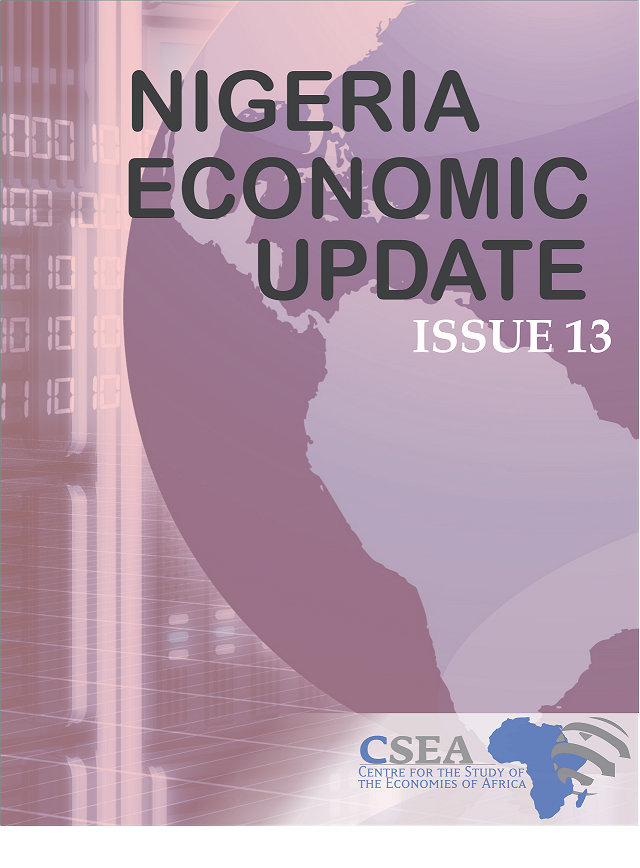Recent media highlights suggests that the Federal Government made a non-oil-based revenue of N1.27 trillion from operating surpluses between 2007 and 20161. The period which covers the years of operation of the Fiscal Responsibility Act, shows a list of agencies and government organizations that paid the operating surpluses (revenues above approved budgetary expenditure at the end of each year) to the federal government. Notably, the annual remittances shows year-on-year increases. This is likely attributable to the improved monitoring and intervention activities of the Fiscal Responsibility Committee over the years. There is greater scope for operating surpluses from public corporations with intensified efforts at monitoring the implementation of the template for calculating operating surplus liabilities across scheduled corporations.
Macroeconomic Report & Economic Updates

March 9, 2018
Nigeria Economic Update (Issue 13)
Recent media highlights suggests that the Federal Government made a non-oil-based revenue of N1.27 trillion from operating surpluses between 2007 and 20161. The period which covers the years of operation of the Fiscal Responsibility Act, shows a list of agencies and government organizations that paid the operating surpluses (revenues above approved budgetary expenditure at the […]
Read →
Related
All-Share Index And Market Capitalization
All-Share Index: In 2016Q1, the decline in ASI was driven by declines in Banking, Insurance, Consumer goods, Oil/Gas, Lotus Islamic, Industrial, AseM, Pension and Premium NSE indices. However, the ASI
Capital Importation And Budgetary Allocation (ITC)
Capital Importation: Given the positive outlook on the ITC sector in the past few years, investments in the sector reached a 10-year peak in 2014. However, the foreign investment fell marginally in 2
